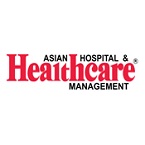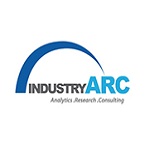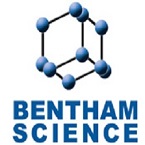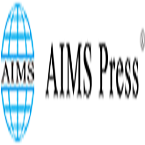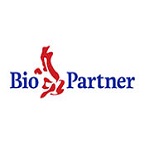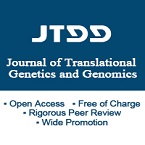Sessions/Trakcs
Track 1: Pediatrics
Pediatrics is the main branch of medicine that deals with the medical supervision of children, infants, and adolescents. A pediatrician is a child's physician who produces preventive health preservation for healthy children and medical supervision for children who are acutely or chronically ill. Pediatricians hold the mental, physical, and emotional well-being of their patients, in every phase of development in good health or in illness. They also are tangled with the prevention, early detection, and dealing of other problems that influence children and adolescents.
Track 2: Neonatology & Perinatology
Neonatology is a subspecialty of pediatrics that consists of the intensive care of newborn infants, especially premature newborn. It is a hospital-based specialty, and is usually practiced in neonatal intensive care units (NICUs). Neonatologist is trained particularly to handle the most complex and high-risk situations. Perinatology is a sub-branch of Obstetrics. It is meant for mother-fetus at higher than normal risk. It deals with the complications in child development during pregnancy. It starts at 20th to 28th week of gestation and ends 1 to 4 weeks after birth. Primatologists work very closely with neonatologist after a child’s birth. Primatologists assist in complications like pre-existing health concerns and complications caused by pregnancy.
Track 3: Pediatric Cardiology
Pediatric Cardiology deals with resolving inherent heart disorders, variations from the norm in the heart and performing demonstrative techniques, for example, echocardiogram and electrophysiology thinks about. Chronic Heart Disease (CHD) is an issue in the structure of heart amid the season of birth. The deformities might be in the dividers of the heart, the valves of the heart, and the corridors and veins close to the heart. The indications can vary from none too dangerous. CHD can be caused because of Genetic conditions, taking pharmaceuticals or liquor amid pregnancy, viral contamination like Rubella, poor nourishing status or stoutness in the mother. A few medicines should be possible by catheter-based systems and heart medical procedures. Consistently, in excess of 35,000 children in the United States are conceived with inherent heart abandons.
Track 4: Clinical Pediatrics
Clinical Pediatrics is a medical journal that follow to publish and to available information on a change of child-center care topics along with those of a clinical, scientific, behavioral, educational, or ethical nature. Clinical Pediatrics allergy is also one of the most important and widely studied areas in novel research of this field. Initial detection of cancer in children also is taking earlier attention in Clinical Pediatrics cancer.
Track 5: Pediatric Pulmonology
Pediatric pulmonologists specialize in treating children breathing problems. Common conditions include Asthma, Pneumonia. Services like Pulmonary Function Testing and Flexible Fiber optic Bronchoscopy (FFB) are included under Pediatric Pulmonology. Pulmonary function testing is a non-invasive test can be done in different ways to work best for children of various ages. An FFB allows pulmonologists to look inside the lungs with a fiber optic scope. This more invasive procedure is not surgery but does require sedation.
Track 6: Neonatal Nutrition
Ideal nutrition in babies is the establishment of wellbeing in later life. Based on the exhibited medical advantages of a human drain eat right academy of nutrition and dietetics. Breast feeding ought to be the essential methods of nourishment for generally newborn children. Eat Right Academy of Nutrition and Dietetics. Health experts can utilize basic systems to conquer a large portion of these issues. Dutch Associations of Pediatrics For newborn children who Academy of Pediatric Societies can't breastfeed, standard baby Pediatric bolster satisfactory nourishment and development. Dutch Associations of Pediatrics Gastro esophageal Reflux may be a normal feeding related event and happens in numerous infant children; it may be a portion of conventional physiology and requires no intervention
Track 7: Child Abuse and death
Child abuse can also be said as child maltreatment, is the condition when a parent or caretaker whether by action or failure to act may cause injury, child death, and emotional harm or may a risk of serious effects to a child. Types of child maltreatment include:
Psychological abuse& child neglect
Adverse experiences study childhood
Disclosure and diagnosis
Track 8: Pediatric Surgery
Pediatric surgery is a subspecialty of surgery including the surgery of fetuses, infants, children, adolescents, and young adults. Some Pediatric diseases surgery such as congenital malformations , abdominal wall defects, chest wall deformities, childhood tumors, Separation of conjoined twins etc.,
Track 9: Pediatric Neurology
Neurology is the branch of pharmaceutical managing sensory system issue. Pediatric Neurology analyses with central and peripheral nervous system in children, new-born and adolescents. The Pediatric Neurosurgery is a sensitive scope in pediatrics which involves in cerebrum, spinal rope, fringe nerves, and additional cranial cerebrovascular frameworks as the fundamental segments. This track will fundamentally talk about neuronal disorders and its diagnosis by complicate surgeries like Spinal Neurosurgery, Pediatric brain surgery, Traumatic Neurosurgery, and Pituitary Neurosurgery.
Track 10: Pediatric Urology & Nephrology Therapies
Pediatric Urology and Nephrology feel like similar cases but the Urology deals with structural and external issues of children’s urinary system and the nephrology therapies involves the diagnosis of internal structures and functions in children. Mainly these both systems deal with acute and chronic urological problems in newborns. Also involves in diagnosis and treatment of congenital genitourinary abnormalities in children.
Hernia
Spinal ifida
Hypospadias
Hydronephrosis
Nocturnal Enuresis
Neurogenic Bladder
Undescended Testes
Vesicoureteral Reflux
Antenatal Hydronephrosis
Ureteropelvic Junction Obstruction
Track 11: Pediatric Endocrinology
Endocrinology deals with the imbalances or disorders of Endocrine glands. If these conditions occur in the children will be treated by the Pediatric Endocrinologist. Pediatric Endocrinology involves in diagnosis and treating several abnormal conditions of endocrine glands, hormonal imbalances and growth problems in children. The major conditions treated under Pediatric Endocrinology are,
Diabetes in children: DM, Type 1 & 2
Hyper & Hypothyroidism
Puberty Disorders
Turner Syndrome
Short stature: Growth problems
Congenital Adrenal Hyperplasia (CAH)
Calcium disorders: Hypocalcaemia, Hypocalcaemia, Juvenile Osteoporosis
Disorders of Sexual Differentiation:
Congenital Adrenal Hyperplasia (CAH)
Androgen Insensitivity Syndrome (AIS)
5-alpha-reductase deficiency (5ARD)
Track 12: Pediatric Dentistry
Pediatric Dentistry is the branch of Dental Sciences. This is categorized based on the age. This condition is named for the children from infant to adolescent. It deals with dental and oral problems with their diagnosis. This Pediatric Dentistry is one of the eight specialties recognized by the American Dental Association. Some of the issues treated under this category are,
Grinding
Bad Breath
Tooth Decay
Gum Disease
Canker Sores
Wisdom Teeth
Sensitive Teeth
Thumb-sucking
Orthodontic Problems
Over-Retained Primary Teeth
Track 13: Pediatric Dermatology
Pediatric Dermatology involves in children care (newborn-adolescent) with skin disorders and/or diseases. In this Pediatric Dermatology, the hair and nails are as important as skin. The hair and nail are composed of keratin and may lead to some of the diseases which affect the skin and other organs as well. Some of the listed Pediatric dermatological disorders,
Birthmarks
Genodermatosis
Neonatal dermatoses
Neurocutaneous disorders
Congenital malformations of skin
Dermatoses: Metabolic, nutritional
Childhood Infections: Viral, bacterial, fungal
Other miscellaneous conditions
Track 14: Perinatal Vaccination
Newborns will have an immature immune system which is open for high infections and risk factors may reduce the therapeutic activity. Baby birth is a major point of contact for the infections. Child vaccination refers to the vaccination done in prior to pregnancy, during pregnancy, and during the post-partum period (both for the mother and her newborn), in order to provide protection to both the mother and her newborn child.
Some of the diseases treated by this Perinatal Vaccination,
Varicella
Hepatitis A
Hepatitis B
Influenza (flu)
Pneumococcal Disease
Meningococcal Disease
Tetanus, Diphtheria, and Pertussis
Measles-Mumps-Rubella (MMR)
Track 15: Pediatric Clinical Case Reports
A Clinical or a Medical case report contains detailed information on the symptoms, signs, diagnosis, treatment, and follow-up of an individual patient, a disease or a disorder. Pediatric clinical case reports deal with the cases related to the pediatrics like adolescent medicine, pediatric cardiology, critical care for newborn, pediatric dentistry, developmental and behavioral disorders, pediatric endocrinology, gastroenterology, pediatric genetics, oncology, neonatology & perinatology, nephrology, neurology, pediatric surgery and more. These are very useful in medical, scientific, and educational purposes.
Unusual presentations of a disease
Unique or rare features of a disease
Therapeutic approach in childhood
Latest variations in disease processes
Management of new and emerging diseases
Pathogenesis of a disease or an adverse effect
Unusual side effects or adverse interactions with medications.
Track 16: Pediatric Nursing - Critical Care
Critical pediatrics care is specially dealing with the ill, injured and unstable conditions of the baby. The critical child care and medication deal with the diagnosing and management of life-threatening conditions and requires intensive care and observation.
Some major unstable conditions of a baby,
Asthma
Pneumonia
Near drowning
Diabetic ketoacidosis (DKA)
Track 17: Pediatric Immunology and Psychology
Pediatric immunology is a branch of medical specialty that deals with immunologic or allergic disorders of youngsters. As system acts as a significant role in identification of the spy and make the defense, kids with immunological disorder are a lot of at risk of cancers. There are many varieties of organs in our body that plays important role in immunologic functions. The organs embrace thymus, bone marrow, spleen and tonsils. Medical specialty touches each medical specialty subspecialty. Most closely aligned to hypersensitivity reaction and medical specialty, medical specialty conjointly has shut ties to infectious diseases, hematology, and medicine.
Track 18: Pediatric Oncology
Genetic predisposition for childhood cancer is under diagnosis. Syndrome-specific screening programs may lead to early detection of a further independent malignancy. Cancer policy investigation may additionally be guaranteed for affected relatives and detection of a change will leave procreative subject matter. Genetic testing in pediatric medicine is of interest to the families, and therefore the overwhelming majority opts for investigation into probably underlying CPSs. Trio sequencing provides distinctive insights into Hertz in pediatric cancers and is progressively changing into a standard approach in fashionable medicine, and thus, trio sequencing wants additionally to be integrated habitually into the observe of pediatric medicine, Because the understanding of the genetic etiology of childhood cancers will increase, the necessity for the involvement of specialists at home with the availability of counseling for this population is predominant.
Track 19: Pediatrics Drug Toxicity
Toxic exposures occur frequently in children throughout the world. Common patterns of poisoning consist of exploratory ingestions in children younger than six years of age and intentional ingestions and recreational drug use in older children and adolescents. Drug treatment in children differs from that in adults, most obviously because it is usually based on weight or surface area. Doses (and dosing intervals) differ because of age-related variations in drug absorption; distribution, metabolism, and elimination (see Pharmacokinetics in Children). A child cannot safely receive an adult drug dose, nor can it be assumed that a child’s dose is proportional to an adult’s dose (i.e, that a 7-kg child requires 1/10 the dose of a 70-kg adult). Considering the relatively high percentage of toxic exposures that involve drugs, it is fortunate that only a few medications are truly life-threatening to a young child who ingests only one or two pills or one to two teaspoon-sized swallows. None of the medications listed in Table 2 will injure every exposed child.
Track 20: Maternal-Fetal and Neonatal Medicine
The perinatal period is thought to be the highest risk for human death (foetal or neonatal death). Maternal-Fetal and Neonatal Medicine covers a considerably wide range of issues such as complicated pregnancy, obstetric complications, foetal diagnosis, treatment, maternal emergencies and surgical complications of pregnancy and their effects on the mother, foetus, and neonate. In particular, the complicated pregnancy has a connection with drug use. Maternal and foetal medicine goal is to benefit mothers and their babies with the critical support to deliver a healthy baby through advancing research in clinical care and discovery.
Neonatal Resuscitation
High-risk pregnancies
Amniocentesis
Blood clotting disorders
Pregnancy hypertension (high blood pressure)
Multiple births twins, triplets, etc.
Track 21: Behavioral & Developmental Pediatrics: Psychology
In Pediatrics the developmental and behavioral issues include disorders in children’s learning, behavior and development stages. Child mental health is just as important as their physical health. Some serious mental health problems are
Bipolar disorder
Developmental delays
Externalizing disorders
Enuresis and encopresis
ADHD tends to appear in childhood
Developmental & learning disabilities
Hyperactivity disorder & oppositional defiant disorder
Track 22: Gastroenterology, Hepatology & Nutrition
The goals of the Gastroenterology division are to provide outstanding children medical care to persons with diseases of the gastrointestinal tract and liver, to train gastroenterology and to perform cutting-edge biomedical research to improve our understanding of digestive diseases. While treating these conditions and clinical cases in children will be pronounced by adding a prefix PEDIATRIC- and the treatment conditions also will be different and delicate.
Complications of ERCP
Liver Transplant Programs
Sphincter of Oddi Dysfunction
Malignant Hilar Biliary Obstruction
Endoscopic Therapy of Pancreatic Diseases
Track 23: Pediatric Radiology
Diagnosis of illnesses, injuries, and diseases of infants, children, adolescents, and young adults by using imaging techniques and equipment (artificial Windows / light panels and positioning equipment such as sponges, weights) is called pediatric radiology.
Pediatric radiologists must complete
A degree from a medical school
1 year or more of clinical medicine training
4 years of training in diagnostic radiology
2 additional years of training in the diagnosis of infants and children using imaging equipment.
Pediatric radiologists must have additional certification from the American Board of Radiology. Pediatric radiologists are highly qualified to choose best imaging techniques such as x-ray, NMR, ultrasound, magnetic resonance imaging (MRI), and computed tomography (CT), to treat various medical and surgical problems in children.
Track 24: Sleep Medicine
Sleep medicine is a medical specialty involved in the diagnosis, management and therapy of sleep disorders and disturbances.
Track 25: Pediatric Emergency Medicine
Pediatric Emergency Medicine (PEM): It’s a medical subspecialty of both pediatrics and emergency medicine. It involves the care of children’s acute or critical illnesses and injuries that require abrupt medical attention.
Basically emergency physicians practice in hospital emergency departments, pre-hospital settings via intensive care units and emergency medical services and urgent care clinics. Sub-disciplines of emergency medicine include medical toxicology, disaster medicine, ultrasonography, hyperbaric medicine, critical care medicine, palliative care, sports medicine, or aerospace medicine. Yearly pediatric emergency physicians in the U.S. make an average of $273,683.
Market Analysis
Market Analysis of Neonatal Research:
The worldwide fetal and neonatal care showcase measure was esteemed at ¥ 3.35 billion out of 2016 and is anticipated to develop at a CAGR of 7.6% over the gauge time frame. A portion of the variables in charge of market development are the high birth rate in developing nations, rising commonness of preterm births, and efforts by the administration to build survival rates in such cases. Likewise, expanding prevalence of neonatal hospital gained diseases and rising awareness.
The decreasing incidence of preterm births is the major factor inhibiting the growth of the Japan market for preterm infant care products and services. Also, the Japan government initiatives to lower preterm birth incidence rate are expected to significantly reduce the number of preterm births in the country. For instance, the government campaign “Healthy People 2010” aimed to reduce the country’s preterm birth rate from 12.7% in 2007 to 7.6% in 2010. According to the National Center for Health, 1 in 8 Japan births are preterm and preterm birth rates in the Japan have declined from12.8% in 2012 to 12.3% in 2016.
Products Manufactured by the industry related Neonatology and its Market Value:
Preterm newborn child care products (equipment, medications, and formulae) would thus be able to be life-basic as they give the respiratory, nutritious, and thermal support important for the survival of pre-term babies. Japan Neonatal (Preterm) Infant Care Market is contemplated by Equipment/Products, Services, Drugs and Formula.
List of drugs manufactured for Infants:
Acyclovir
Albuterol
Amoxicillin
Ampicillin
Ativan
BiCitra
Caffeine
Cefotaxime
Dexamethasone
Dobutamine
Dopamine
Epinephrine
Fentanyl
Fluconazole
Rocuronium
The administrations section represented the biggest share of the general newborn child market at ¥ 7.5 billion out of 2010. New item dispatches and innovation upgradation are the two principle methodologies received by the players to remain competitive in this market. The Japan market for preterm care devices is mature and divided, with various players offering both basic and sophisticated equipment at reasonable rates. However nearby makers offer comparative items at around ¥ 1,000 – ¥ 7,000.
Statistics of Physicians, Researchers and Academicians working on Neonatology-
The principle part of the world related with Neonatology field are Directors, Heads, Deans, Professors, Scientists, Researchers, Doctors, Students and Writers of Neonatology Department and in addition Founders and Employees of the related organizations, Associations individuals, related associations, labs individuals and so on.




